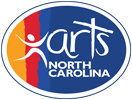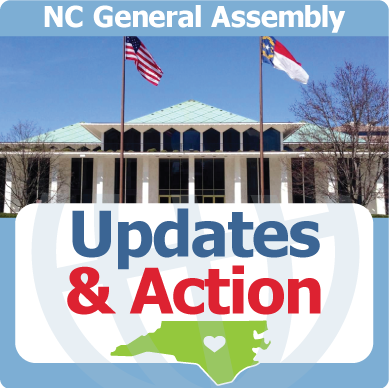UPDATE: Progress on NC Arts Funding and Arts Advocacy Next Steps

The NC General Assembly unanimously passed two pieces of legislation, which Governor Cooper has signed into law, in response to the COVID-19 pandemic. The final version of the NC Senate bill, S704, contained a wide range of policy provisions related to the pandemic, many of which adjusted state law to align with recent federal laws and executive orders issued by Governor Cooper. The final version of the NC House bill, H1043, appropriated over $1.5 billion of the $3.5 billion in federal relief funding allocated to the State in the Coronavirus Aid, Relief, and Economic Security (CARES) Act, almost entirely for health care, education, and other essential services. This round of legislation did not include the requested $3 million of funding for the arts through the NC Arts Council. However, we have seen significant progress in the last week and believe that funding may be allocated for the arts when the NC General Assembly reconvenes on May 18th to consider further legislation to address the COVID-19 pandemic.

Arts NC will continue to track this situation and provide timely updates, as well as let you know the best timing and methods for future advocacy through our Calls to Action. We urge all arts advocates to do the following:
- Request a meeting with your NC State Legislators (phone or video) in the coming weeks to discuss the effects of the pandemic on the arts, the ways the arts have adapted to the crisis, and how the arts build communities and economies. Ask that they advance public funding and policy that supports artists and nonprofit arts organizations.
- Contact your City and County leaders to have similar conversations about the value of the arts and the need for continued support. Local governments are facing massive revenue shortfalls and the amount federal and state assistance they will receive is still largely unknown. Some local governments are already discussing cutting arts funding as a result. Now is the time to start a conversation.
- Keep answering all Arts NC Calls to Action for both state and federal issue. Arts NC will begin using new software in the coming weeks that will allow us to be more targeted and effective in our support for the arts and make it easier for our advocates to engage in advocacy at the federal, state, and local level.
It is also important to note that while the arts sector did not receive funding last week, other struggling industries didn’t receive grant funding either, such as hotels and restaurants who also made requests for emergency grants as a result of the pandemic. Arts NC has made it a priority that the arts are included in all financial pandemic efforts, and to date we have not been excluded from any new programs or grants made available to other industries. The fact that the nonprofit arts sector contributes over $2 billion dollars to North Carolina’s economy and will play a vital role in its recovery remains one of our most crucial supporting arguments to receive stabilization funding alongside other effected industries.
One of the provisions of S704 requires all school district to submit plans for remote learning during the 2020-2021 school year to insure that educators and administrators are prepared for future school cancellations. Language in the original bill asked that plans “produce learning growth that is commensurate with what would have taken place had the remote instruction day been a non-remote instruction day,” which was of concern to many arts educators who could not possibly achieve commensurate growth in their subject area through remote instruction. The language in the final version of the bill required plans to “support learning growth that continues towards mastery of the standard course of study,” which is a more attainable goal and allows arts educators increased flexibility.
S704 also made several changes to unemployment insurance policy that will improve the response for those out of work as a result of the pandemic. There was also bipartisan support last week for increases in weekly benefits after some of the federal supplements expire at the end of July, though these increases were not included in the final legislation. The economic challenges of the pandemic will result in hundreds of thousands of North Carolinians relying on these benefits, including many artists and arts workers. Arts NC will continue to make unemployment insurance one of our primary policy concerns and is encouraged that the NC General Assembly seems open to reforms in the coming months.
We are grateful for the tremendous response of our arts advocates in the last few weeks and are committed to working with the entire arts community as we navigate the challenges of this crisis.

